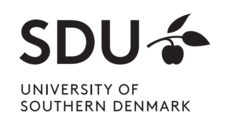MSc in Physics and Technology Engineering

Find the answer to why and how technology works
During your studies you will find the answer to why and how technology works – and you will use that knowledge to develop, for example, optically based faster computers or new optical measurement methods for diagnosing cancer, or ultra-sensitive sensors capable of detecting the presence of just a few molecules of narcotics or explosives.
Since the invention of the laser some fifty years ago, optics and especially nanotechnology have undergone a rapid development and become significant parts of physics, technology and industry as well as of our everyday lives. Just imagine that without the laser, things such as the DVD-player would not have existed and you would not have been able to print on a laser printer.
With a master programme in Physics and Technology you will acquire specialist skills in a broad area, primarily linked to the design and fabrication of nanostructured functional materials as well as the characteristics of light and its interaction with atoms, molecules and matter. Applications that exploit these aspects are the primary focus of this academic profile.
Science of light and color
Optics is not about glasses and contact lenses; it is about the science of light and color. The programme includes theories on how to produce light in for example lasers, the scattering of light in different matters, and theories of how light interacts and exchanges energy with the matter. Laser light interacting with a nanostructured noble metal is confined to the metal surface; something which will enable you to use nanometre thin gold wires to guide light.
You build on your already strong foundation in physics, technology and mathematics. This provides you with a deeper knowledge of especially advanced optics, quantum physics, material physics and molecule physics, nanophysics and the fabrication of nanostructures. These subjects enable you to work interdisciplinary in this rapidly changing high-tech world with challenges in academic frontier areas.
In addition, you will acquire expertise in measuring and analyzing signals – with special focus on, for example, highly sensitive sensors combined with intelligent data analysis.
In your master thesis project you can work in one of the university's exciting research areas related to the academic profile.
This could for example be nanooptics, where you utilize the fact that light can be intensified millions of times when it interacts with tiny gold particles. By optimizing this process it is possible to create highly sensitive single-molecule sensors which can detect, for example, pesticides on the surface of vegetables or fruits.
Project-based and research-based study environment
You become part of a project based and problem based study environment where you work in project groups. You and your fellow students are responsible for planning and carrying out the project – and for meeting the deadlines. Usually we receive the project outlines from companies and we emphasise that the problems you solve are ‘real world’ problems.
Na studia magisterskie mogą kandydować wszyscy, którzy ukończyli studia licencjackie lub inżynierskie (studia I stopnia), studia magisterskie lub studiują na ostatnim roku studiów I-stopnia. Studia, które planujesz powinny mieć zbliżony profil do tych obecnych lub ukończonych, ponieważ w procesie rekrutacji kluczowa jest ich zgodność programowa.
- Wykaz punktów ECTS – osoby, które są jeszcze w trakcie studiów, muszą załączyć wypis punktów ECTS, w którym będzie wykazane, jakie przedmioty były realizowane na studiach oraz ile punktów za nie otrzymano.
- Dyplom ukończenia studiów licencjackich lub inżynierskich – jeśli jesteś absolwentem wyższej uczelni, nie potrzebujesz wypisu, wystarczy załączyć dyplom ukończenia studiów wraz z suplementem (w języku angielskim lub oryginał z tłumaczeniem)
Course description - należy przygotować dokument, zbierający cały sylabus ze studiów licencjackich. Takie sylabusy najczęściej są do pobrania na stronie uniwersytetu. Należy je przetłumaczyć na język angielski (można samodzielnie) i złączyć w jeden dokument. Warto też zapytać w dziekanacie uczelni, czy nie dysponują wersją angielską.
Oficjalna skala oceniania Twojej uczelni - możesz dostać taki dokument w dziekanacie Twojej uczelni lub skonstruować samodzielnie. W obu przypadkach dokument powinien zawierać pieczątkę dziekanatu.
- TOEFL IBT - 88. For validation, we need to receive a score report directly from the test center. To select University of Southern Denmark as recipient, use the code 7969. Please choose "other - department not listed". If you have already taken the test, you can still make a request for the test center to forward the report. Please inform us once you have made such a request.
- IELTS - 6.5
You can apply if you hold a similar, relevant degree in Science or Engineering. To be considered, your degree must include a minimum of:
- 25 ECTS within mathematics (Mathematics, Statistics)
- 40 ECTS within engineering physics (Mechanics, Electronics, Electromagnetism, Quantum Mechanics, Optics)
As part of your application, you must fill in and upload a form in which you state which subjects from your education you consider relevant in relation to the requirements mentioned above. You must upload the form to the application portal when you submit your application. Download the form here (.pdf).
As a student in Engineering at SDU Sønderborg, you are guaranteed your first job when you finish your MSc studies. You can find more information here.
With a master degree in Physics and Technology you are qualified for work in:
- Research
- Development
- Technological aspects of business development
- Consultancies
- Project management.
You will be qualified for jobs in, for example:
- Optical communication
- Sensor technology
- Medical technology
- Aerospace engineering
- Material engineering
- Energy technology
- Optical design and engineering including laser systems
- Nanotechnology including fabrication processes and characterisation techniques
- Computer modelling of physical and technical systems.
You will also be qualified as a university researcher in, for example, nanooptics or to develop new optical detection techniques e.g. for medical diagnosis in close collaboration with medical doctors.
With this programme you are qualified for a job in Denmark or abroad and for studies at PhD level.
